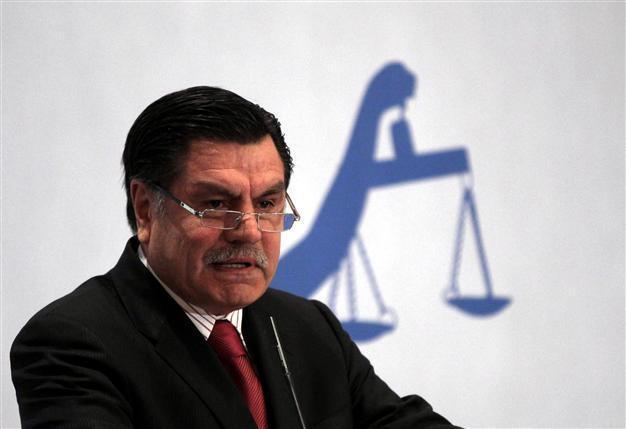Turkish Constitutional Court head complains of ‘pressure’ on members
ANKARA

The head of Turkey’s Constitutional Court, Haşim Kılıç. AA Photo
The head of Turkey’s Constitutional Court, who is set to retire within months, has complained of “intense pressure” being applied to members of his Court, while also stating that a key decision on whether to lift the 10 percent election threshold for legislative representation will be announced soon.
“When the Court’s agenda is announced, enormous pressure is imposed on our members,” Constitutional Court President Haşim Kılıç said in an interview with daily Sözcü on Jan. 2, when asked why the Court has ceased to regularly announce its agenda on its official webpage.
“Members are extremely annoyed at this situation. That’s why we have decided not to announce the issues on the Court’s agenda, in order to ease pressure on our members,” added Kılıç, the head of the 17-member court.
The Constitutional Court has recently been targeted by the government over its rulings on individual complaints, particularly for adding to its agenda complaints that the 10 percent election threshold is unconstitutional. Some officials have described the latter’s consideration as an attempted “coup.”
When asked about the Court’s agenda regarding the threshold issue, Kılıç, who will retire in March, said the question would be “handled in the shortest time and will be finalized.”
Parliamentary elections are currently scheduled for June, and Kılıç’s response has been considered a sign that the decision regarding the threshold may be delivered before his retirement.
Among fundamental rights that may be subject to individual applications to the top court, Kılıç also cited the right to a free election.
The top court’s visibility has grown due to crucial decisions it has made, such as its April 2, 2014, ruling concerning Turkey’s block on Twitter access.
In its ruling, the Constitutional Court said the block violated freedom of expression and individual rights. The ruling marked the most significant legal challenge yet to the ban, which caused public uproar and international condemnation.
More than 30,000 applications since Sept. 2012
Individual access to the top court came into effect in September 2012, as part of a set of reforms that were voted on in the Sept. 12 referendum in 2010 – reforms that were carried out as part of Turkey’s bid for full EU membership.
Since September 2012, Turkish citizens have had the right to personally apply to the Constitutional Court for alleged violations of their fundamental rights and freedoms as guaranteed by the Constitution and the European Convention on Human Rights (ECHR).
“Since Sept. 23, 2012, when the applications began being accepted, almost 32,000 cases have been filed. We have finalized almost 16,000 of them. The other 16,000 cases will continue to be reviewed this year,” Kılıç said.
“However, applications have been gradually increasing, so the process of reviewing the cases is getting longer too,” Kılıç said.
At top court since 1990 A graduate of Eskişehir Academy of Economics and Commercial Sciences, Kılıç worked at the Court of Accounts before beginning work as judge at the Constitutional Court in 1990. During his tenure, he was elected as the vice president of the court twice and has been its president since 2007.
